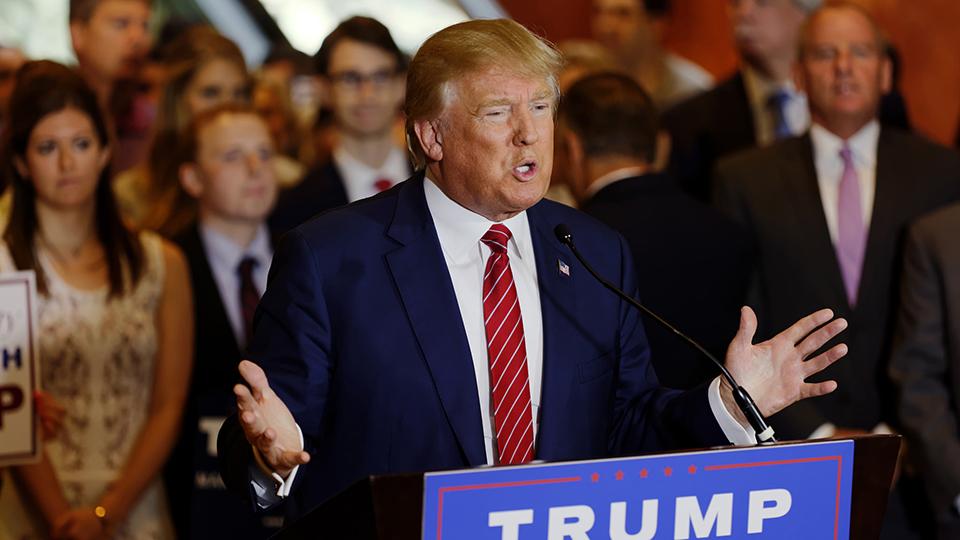Why do some voters fall for conspiracy thinking?
Primary page content
The belief that America deserves special treatment predicted the rise of conspiracy thinking during the 2016 US presidential election, research led by Goldsmiths, University of London has found.

The researchers studied a phenomenon called ‘collective narcissism’, in which members belonging to a group have an exaggerated belief in their group’s greatness: in this case Americans exhibiting an exaggerated belief in the unique importance of the United States.
Using data on the views of over 1,600 individuals, gathered from online surveys conducted in July and November 2016, the team from Goldsmiths and the University of Minnesota analysed the relationship between collective narcissism and a tendency to view political events in terms of group-based conspiracies.
The study found that American collective narcissism predicted a growth in generic conspiracy thinking over the course of the 2016 presidential election. The strong link to collective narcissism remained even when taking into account factors such as demographic variables, education, and ideology.
A report of the research is published in the European Journal of Social Psychology.
Dr Agnieszka Golec de Zavala, Senior Lecturer in Psychology at Goldsmiths and lead author said: “Collective narcissism is not the same as just thinking your country is great, it’s about thinking it is unique and, more than any other country, deserving of special treatment.
“While previous research has looked at collective narcissism and specific conspiracy theories what we have found is evidence that collective narcissism predicts a general tendency to believe in conspiracies. This kind of thinking assumes a certain ‘them’ plots to undermine ‘us’: the ‘them’ and ‘us’ can be then filled in by any particular content. Our findings also suggest that the link between collective narcissism strengthens during political campaigns. It is most likely because people susceptible to the conspiracy narrations are provided with many new contents which mobilises them to protect the ‘us’ (i.e. vote for the candidate who seems to offer protection and make ‘us’ great again).”
The data came from a panel study of American adults commissioned by the University of Minnesota’s Center for the Study of Political Psychology. The data were collected online through Survey Sampling International.
To measure conspiracy thinking survey participants were asked to rate how much they agreed or disagreed with statements such as “Much of our lives are being controlled by plots hatched in secret places” and “The people who really ‘run’ the country are not known to the voters”. To measure collective narcissism participants were asked to rate statements such as: “The United States deserves special treatment,” and “I will never be satisfied until the United States gets the recognition it deserves”.
Image: Donald Trump in the US election. Photo: Michael Vadon via Flickr